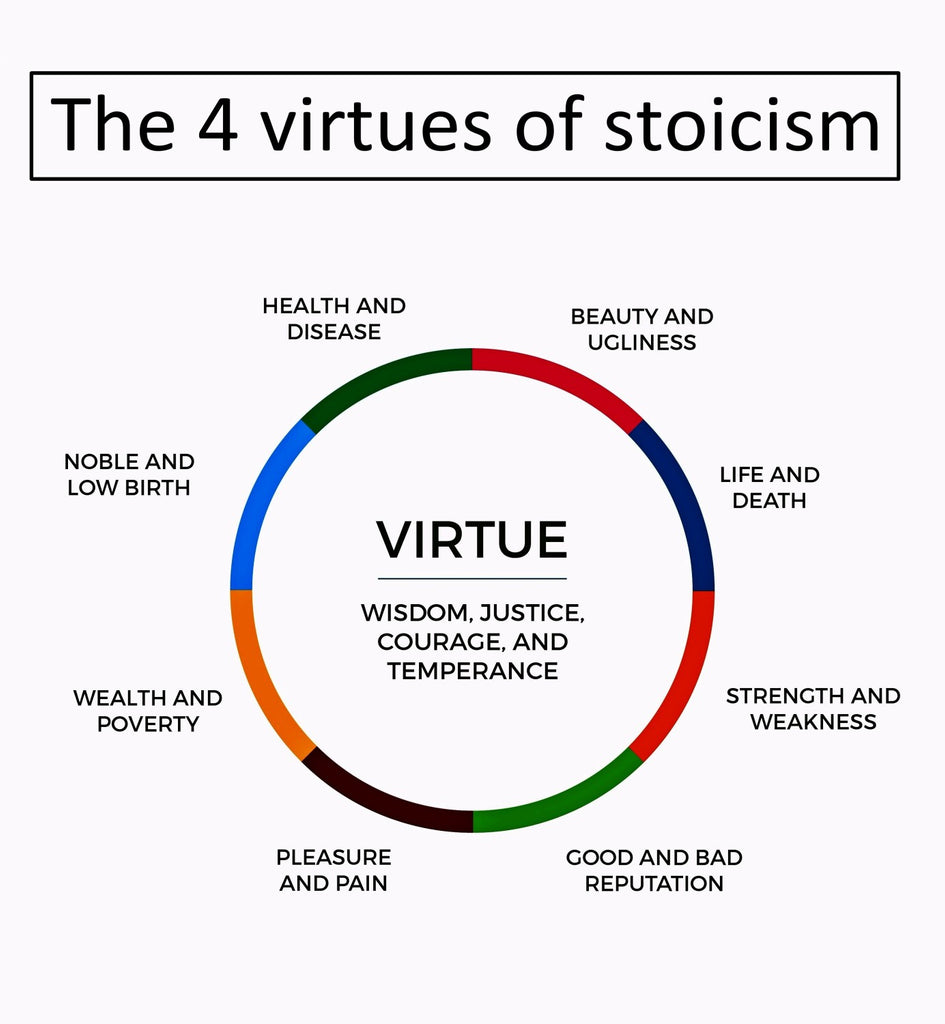WE EXPLORE VARIOUS PHILOSOPHIES AND ITS PRINCIPLES TO ASSESS THEIR APPROPRIATENESS AS GUIDES IN THESE ACCELERATING EXPONENTIAL TIMES

Stoicism
Stoicism is a philosophical school that originated in ancient Greece and was founded by Zeno of Citium in the early 3rd century BC. Stoicism emphasizes rationality, virtue, and self-control as the key to leading a good life.
The philosophy teaches that individuals should focus on what they can control, accept what they cannot control, and remain indifferent to external circumstances beyond their control.
Stoics believe that emotions such as anger, fear, and desire are destructive and can lead to suffering.
They encourage individuals to live in accordance with nature and to cultivate an inner sense of tranquility and detachment from material possessions and external circumstances.
The Stoic philosophy also emphasizes the importance of living in the present moment and of treating others with kindness and respect.
The primary concepts of Stoicism include:
- Virtue: The ultimate goal of Stoicism is to live a virtuous life, characterized by wisdom, courage, justice, and self-control.
- Logic: The Stoics believed that reason and logic were the best tools for understanding the world and making decisions.
- Nature: The Stoics believed that the universe is rational and governed by natural laws, and that individuals should strive to live in harmony with nature.
- Fate: The Stoics believed that everything happens for a reason and that individuals should accept their fate with equanimity.
- Self-control: The Stoics believed that individuals should cultivate self-control and avoid being driven by their emotions.
Regarding its suitability for a Singularity Ready Lifestyle, Stoicism can provide some useful principles.
For instance, the philosophy emphasizes rationality and logic, which can be valuable in navigating complex systems and technologies.
It also emphasizes self-control and detachment from external circumstances, which can be helpful in managing the potential disruptions and uncertainties that may arise in a rapidly changing world.
Overall, Stoicism provides useful principles for living in a rapidly changing world, but it may have limitations in addressing the complexities of modern ethical issues and the potential impacts of technology on nature.
Stoicism Singularity Scores
|
Principle |
Branch |
Singularity Score |
Reason |
Criticism |
|
Virtue |
Ethics |
+75 |
Virtue is a timeless principle that can guide ethical decisions |
Stoicism may not address the complexity of modern ethical issues |
|
Logic |
Epistemology |
+80 |
Logical reasoning can help individuals navigate complex systems |
Stoicism may undervalue the role of emotions and intuition |
|
Nature |
Metaphysics |
+70 |
Living in harmony with nature can promote sustainability |
Stoicism may not account for the potential impacts of technology on nature |
|
Fate |
Cosmology |
+60 |
Accepting fate can help individuals cope with uncertainty |
Stoicism may undervalue the role of agency and human potential |
|
Self-control |
Ethics |
+85 |
Self-control can help individuals manage their impulses |
Stoicism may not address the potential harms of excessive self-control |

